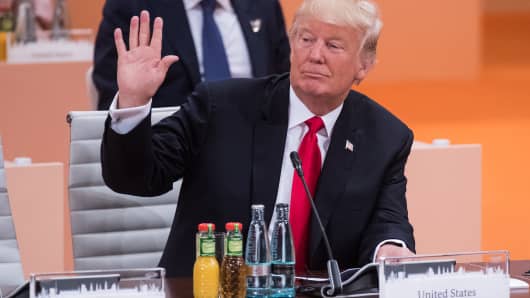Pursuing one of American core national interests, the U.S. administration lost a multilateral dimension of its forceful quest to balance trade accounts.
Washington's unassailable trade case against China, the European Union, its North American neighbors and Japan is fundamentally an issue of world economy. Reducing that case to bilateral quarrels robs America of a powerful negotiating advantage, and of the high moral ground of a world leader.
Buying more than half-a-trillion dollars worth of goods and services more than it sells to the rest of the world, America is making a large net contribution to the rest of the world, and remains an indisputable locomotive of the global economy. Washington, therefore, has a very different role on the world stage than major trade surplus countries taking nearly a trillion dollars of purchasing power from their trading partners.
As a result, America is squarely at the helm of the crucial issues of international economic policy coordination — the key mission of G-20 summits, which serve as the world's principal economic forum.
The G-20 meeting, scheduled for late June in Japan, could be an opportunity for the U.S. to begin reducing its trade deficits — large subtractions from its aggregate demand — by leading the way to an appropriate economic policy coordination on a global scale.




